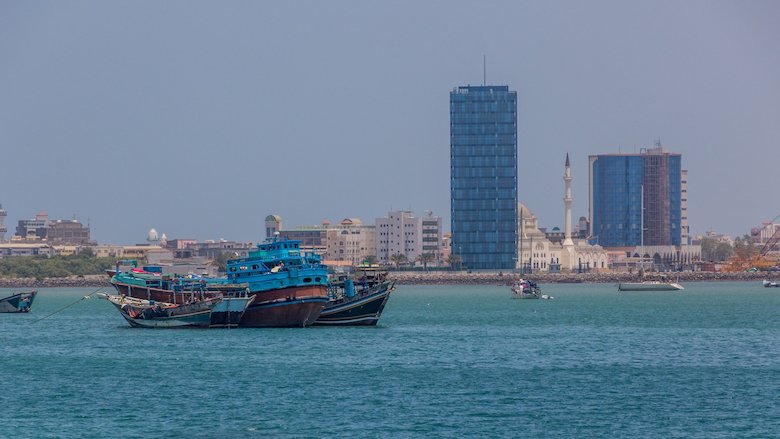The withdrawal of COVID-19 movement restrictions facilitated Djibouti’s economic rebound in 2021 to an estimated 4.3%. Growth is projected to remain moderate in 2022 but to expand briskly thereafter thanks to infrastructure projects, reducing the incidence of poverty from 14.7% in 2020 to a projected 12.4% in 2024. Regional stability and commitment to fiscal consolidation and structural reforms remain critical for Djibouti’s growth prospects. As a net importer of food and energy, Djibouti is vulnerable to commodity price shocks, which is further exacerbated by the war in Ukraine.
Recent Developments
GDP growth in Djibouti rebounded to 4.3% in 2021 from 0.5% in 2020 (lowest growth since 2000), driven by the withdrawal of COVID-19 movement restrictions, which allowed for the resumption of major public works, such as the transformation of the old port into a shopping center, preparatory works for the construction of a shipyard repair factory, and the development of the Damerjog Industrial Development Free Trade Zone. Government transfers and income support initiatives also bolstered household consumption, but a softening of maritime transport and services overall have somewhat offset the growth momentum. Headline inflation rose to 2.5% at the end of 2021 (year-on-year), reflecting the recovery of domestic demand, high global commodity prices, and recurrent shortages in imports of fresh food from Ethiopia.
Outlook
Growth is projected to soften to 3.3% in 2022 reflecting spillover effects of regional instability, and namely if the crisis in Ethiopia protracts further. Economic activity is expected to strengthen in 2023 and 2024 boosted by new infrastructure projects. Djibouti’s medium-term outlook is subject to downside risks, including the emergence of new COVID-19 variants, persistent disruption in global transports and logistics value chains (particularly important for port-related SOEs activities), and continuation or possible intensification of the Ethiopian crisis. As a net importer of food and energy, the economic consequences of the war in Ukraine would likely affect Djibouti's external account through higher import bills. The 2022 Finance Law proposes several revenue and expenditure measures to create fiscal space for debt services. With continued economic growth, poverty is expected to resume its downward trend from 14 % in 2022 to 12.4% in 2024.
